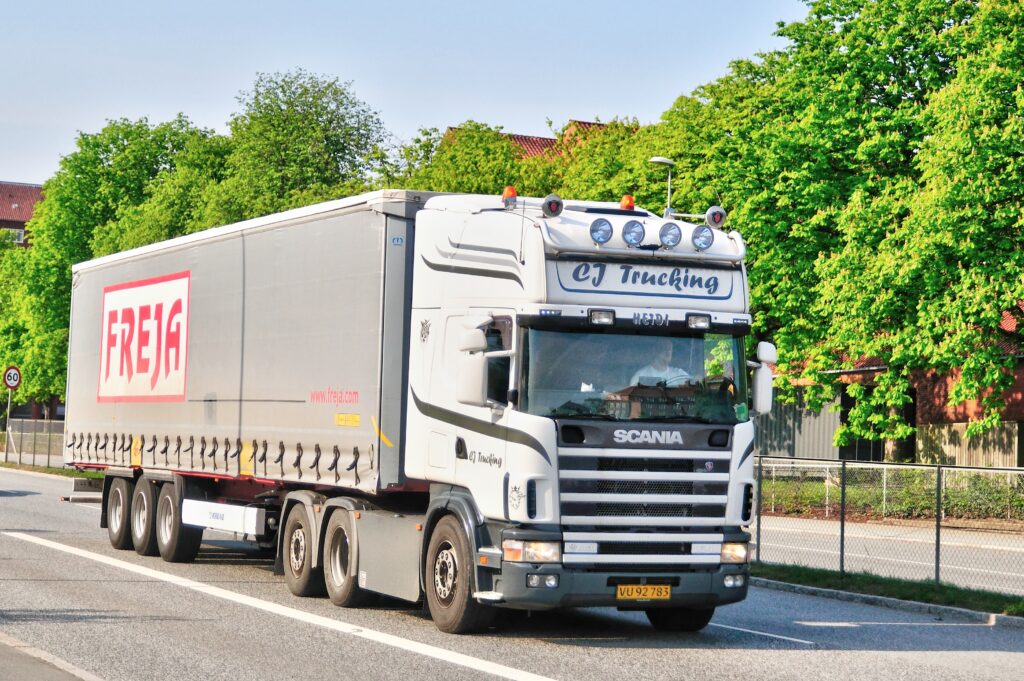
In an era marked by increased environmental awareness and the urgent need to combat climate change, the logistics industry stands at a crossroads. The traditional model of logistics, characterized by excessive fuel consumption, inefficient route planning, and avoidable emissions, is undergoing a paradigm shift. Enter Electronic Logging Devices (ELDs), a powerful technological solution that is not only enhancing regulatory compliance and operational efficiency but also playing a pivotal role in advancing sustainable logistics practices.
The Carbon Conundrum in Logistics
The logistics sector has long been a significant contributor to carbon emissions, mainly due to factors such as long-haul transportation, inefficient route optimization, and idling vehicles. As industries across the globe strive to align with ambitious sustainability goals, the onus falls on logistics companies to find innovative ways to reduce their carbon footprint.
ELDs: Beyond Compliance, Towards Sustainability
At the heart of modern logistics transformation lies the Electronic Logging Device (ELD). These digital devices have fundamentally changed how fleet operations are managed and monitored. ELDs are hardware units that are integrated into commercial vehicles, designed to accurately record and track crucial data related to a driver’s activities. These include driving time, engine hours, miles covered, and location information. By seamlessly connecting with the vehicle’s engine control module (ECM), ELDs capture data in real-time, providing a comprehensive overview of a driver’s daily operations. This information is then digitally stored, making it easily accessible for both drivers and fleet managers. While the primary objective of ELDs is to ensure compliance with Hours of Service (HOS) regulations, their functionalities extend far beyond regulatory requirements, offering insights that drive operational efficiency, safety, and now, sustainability.
Electronic Logging Devices (ELDs) were initially introduced to streamline and monitor drivers’ hours of service, ensuring compliance with federal regulations. However, their capabilities extend far beyond regulatory compliance. ELDs are rapidly evolving into dynamic tools that provide real-time data insights, enabling logistics companies to make informed decisions that align with environmental sustainability.

4 Sustainable Impacts of ELDs
1. Route Optimization for Fuel Efficiency
One of the most impactful ways ELDs contribute to sustainable logistics is through route optimization. These devices utilize advanced algorithms and real-time data to suggest the most efficient routes, considering factors like traffic patterns, road closures, and weather conditions. By minimizing travel distances and reducing idle time, ELDs directly translate into reduced fuel consumption and emissions.
2. Idling Monitoring and Reduction
Excessive vehicle idling is a major contributor to unnecessary emissions. ELDs with built-in sensors can monitor and record instances of idling, allowing companies to identify and address areas of concern. By curbing idling practices, logistics companies can significantly cut down on emissions and contribute to cleaner air and reduced fuel costs.
3. Predictive Maintenance for Efficient Fleets
Well-maintained vehicles are not only safer but also more fuel-efficient. ELDs can play a crucial role in predictive maintenance by monitoring vehicle health and providing insights into maintenance needs. By addressing maintenance issues proactively, logistics companies can ensure their fleets operate optimally, minimizing fuel inefficiencies and associated emissions.
4. Data-Driven Decision-Making for Sustainability
ELDs generate a wealth of data that logistics companies can leverage to make informed decisions. By analyzing historical data on routes, fuel consumption, and vehicle performance, companies can identify trends and patterns that guide the implementation of sustainable practices. Data-driven decision-making empowers companies to adopt strategies that have a direct impact on reducing their carbon footprint.
The Road Ahead: ELDs and Green Initiatives
As the call for sustainable practices grows louder, the role of ELDs in fostering green initiatives in the logistics industry becomes increasingly important. By embracing ELDs as more than just compliance tools, logistics companies can actively contribute to environmental preservation while simultaneously optimizing their operations.
The journey towards sustainable logistics is one that requires a collective commitment from industry players, governments, and consumers. ELDs serve as a bridge between technological innovation and environmental responsibility, enabling logistics companies to reduce their carbon footprint while enhancing their efficiency and competitiveness. As ELD technology continues to advance, the future of logistics is set to be greener, more efficient, and in harmony with our planet’s well-being.




